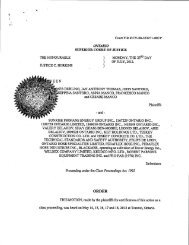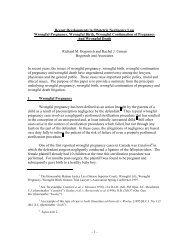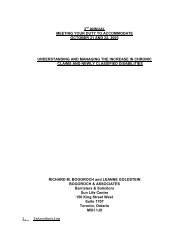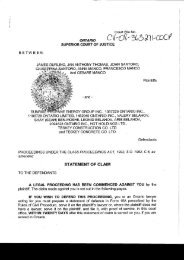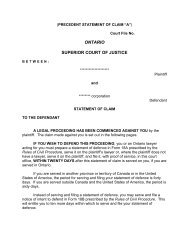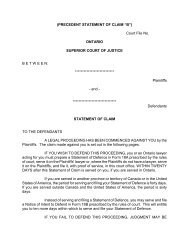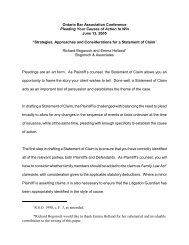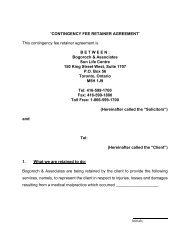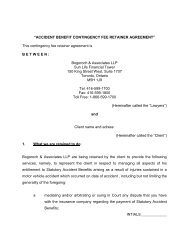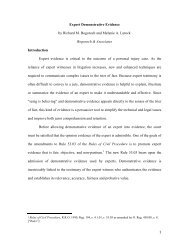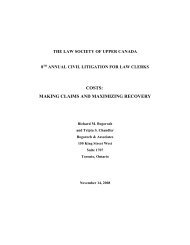"Thin Skull" Damages into "Crumbling Skull" Damages - Bogoroch ...
"Thin Skull" Damages into "Crumbling Skull" Damages - Bogoroch ...
"Thin Skull" Damages into "Crumbling Skull" Damages - Bogoroch ...
Create successful ePaper yourself
Turn your PDF publications into a flip-book with our unique Google optimized e-Paper software.
-36-<br />
Rowbotham J. misinterprets the plaintiff’s “original position” as that of an individual likely to suffer<br />
debilitating effects of the somatization disorder in the future, notwithstanding the absence of any<br />
evidence in this regard and notwithstanding his finding that the aggravation of the plaintiff’s<br />
somatization disorder was solely as a result of the accidents. Rowbotham J. does not reduce the<br />
plaintiff’s damages according to the risk of future debilitating effects attributable to her pre-existing<br />
condition (which would have been appropriate if any such future effects were proven), but instead<br />
limits damages to the extent to which the plaintiff’s injuries were aggravated by the accidents.<br />
7. Conclusion<br />
The Supreme Court of Canada’s decision in Athey has served as a framework for the assessment of<br />
liability and damage awards in Canadian courts and in particular, has had a profound effect on the<br />
assessment of damages awarded to thin skull and crumbing skull plaintiffs. The principles in Athey<br />
provide a comprehensive and cogent analysis of the extent to which a defendant should be held<br />
responsible for a plaintiff’s injuries in the presence of other contributing factors and pre-existing<br />
conditions.<br />
In general, Canadian courts have been successful in applying the Athey principles consistently to<br />
create predictable results with respect to causation and damages. However, in certain circumstances,<br />
courts have misapplied the Athey principles with respect to in awarding damages. This move<br />
towards thin skull awards for crumbling skull plaintiffs results in over-compensation of plaintiffs<br />
and a high level of liability on defendants and is contrary to the principles established by the<br />
Supreme Court of Canada.



